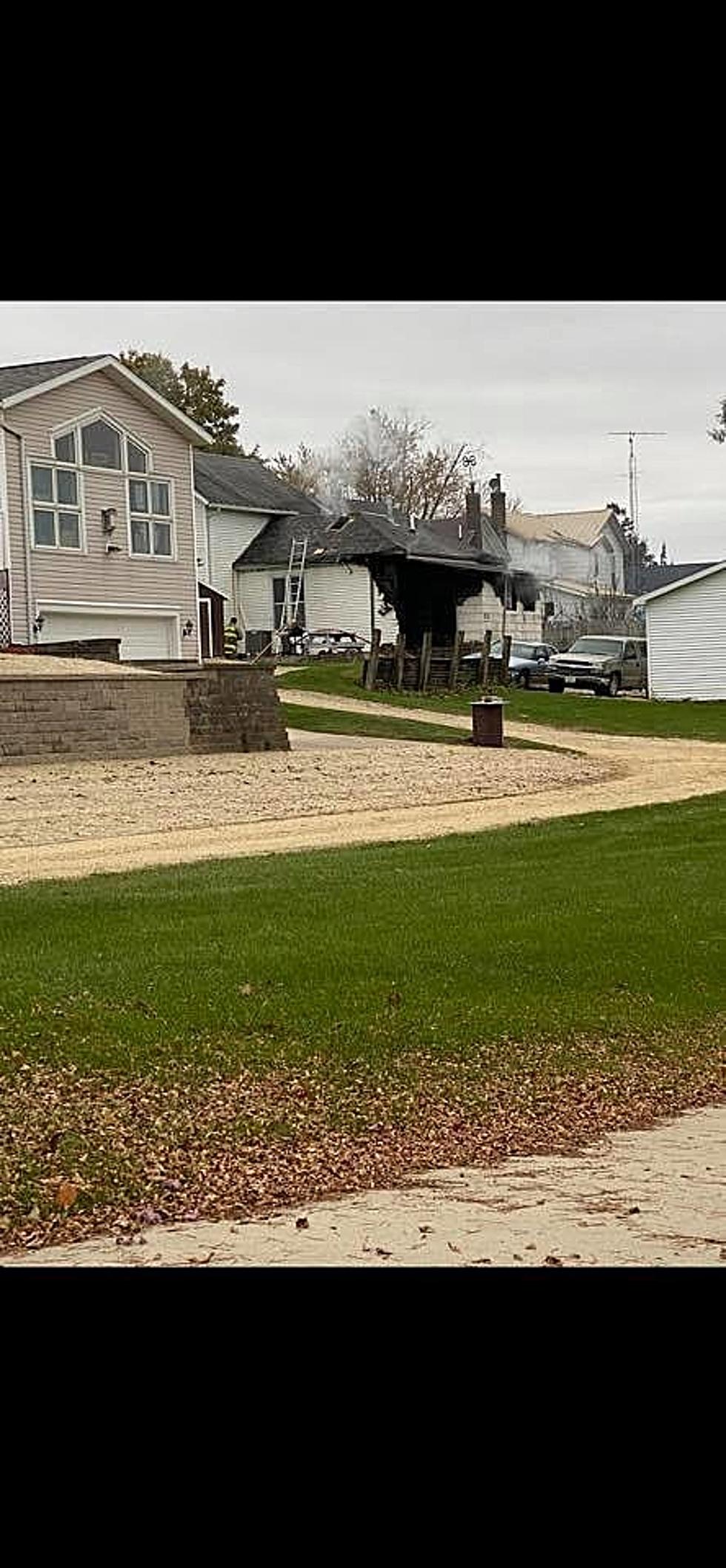
Ken Says Goodbye to His Childhood Home in Cascade, Iowa
If I seem a little sad today and not my usual fun-loving self, there's a reason. The house in Cascade, Iowa that I grew up in and spent the first 21 years of my life, caught fire today. The house is still standing, but fire officials say it's likely a total loss. Fortunately, there were no human injuries but three cats were killed in the blaze. Below are photos my sister took this morning.
If you look at the siding on the gray house (the one next to my childhood home) you can see the siding has rippled meaning there was some serious heat coming from the fire. next door.
Even though I haven't been in the house since it was sold by my parents about 10 years ago, I was still saddened to hear of the fire. When I would visit family and friends in Cascade, I would always drive just a little slower past the house just to reflect and remember the fond memories created there. They say you can "never go home again" and now thanks to today's blaze, that indeed seems to be the case.
No cause for the fire has been announced.
LOOK: The most expensive weather and climate disasters in recent decades
More From 103.3 WJOD
![So, Does Walker Hayes Eat Free at Applebee’s? — Taste of Country Nights, On Demand [Listen]](http://townsquare.media/site/204/files/2021/11/attachment-walker-hayes-podcast.jpg?w=980&q=75)








